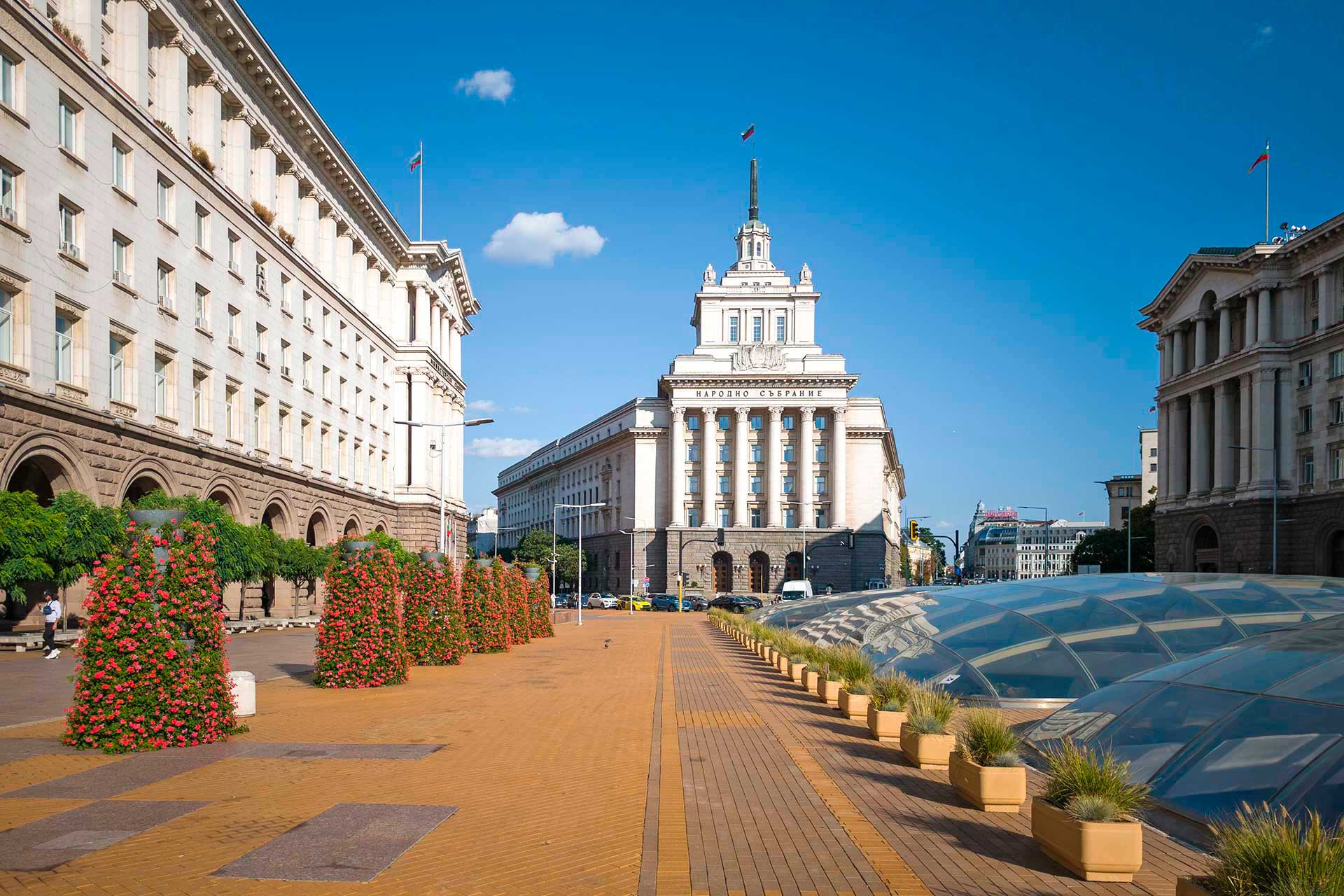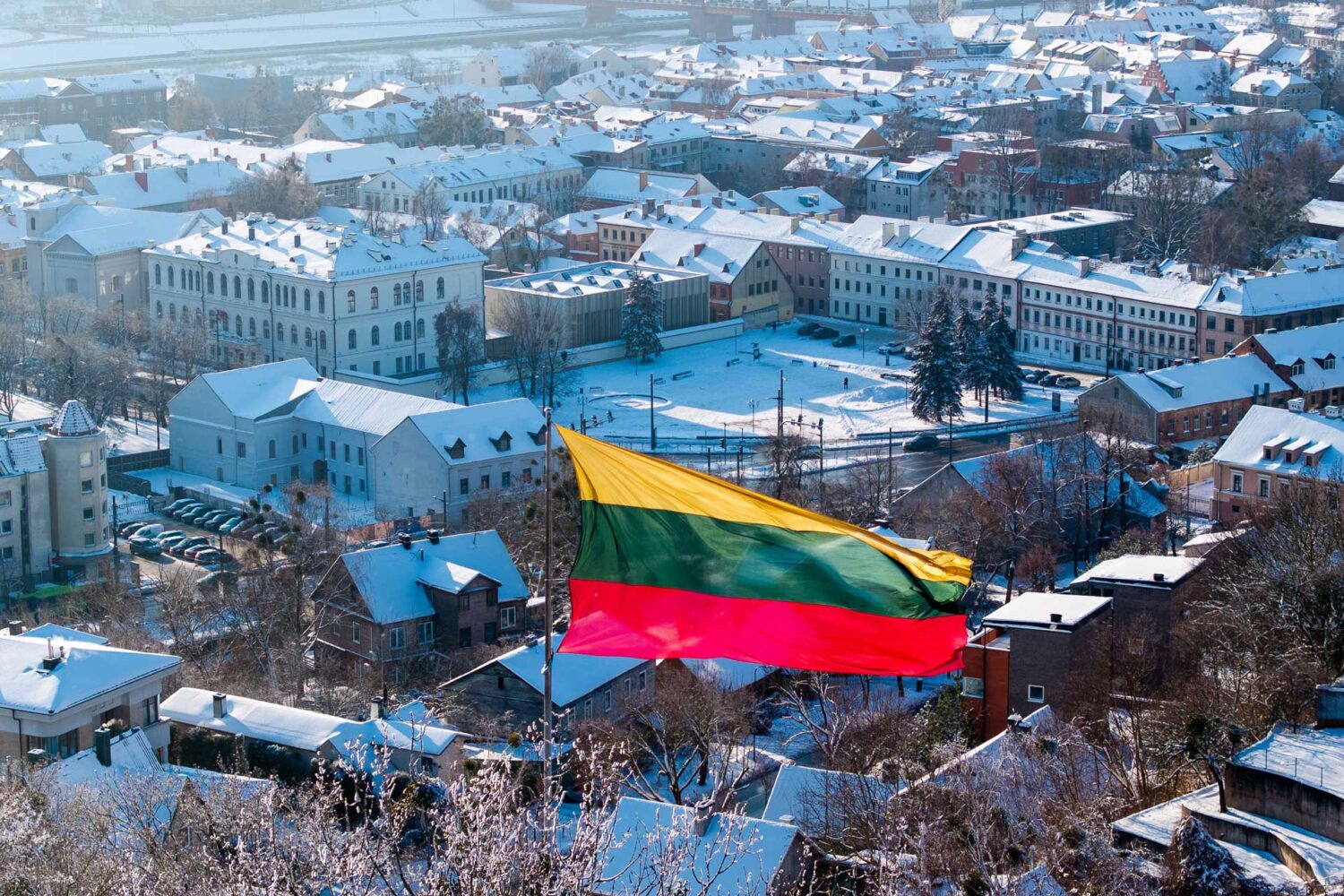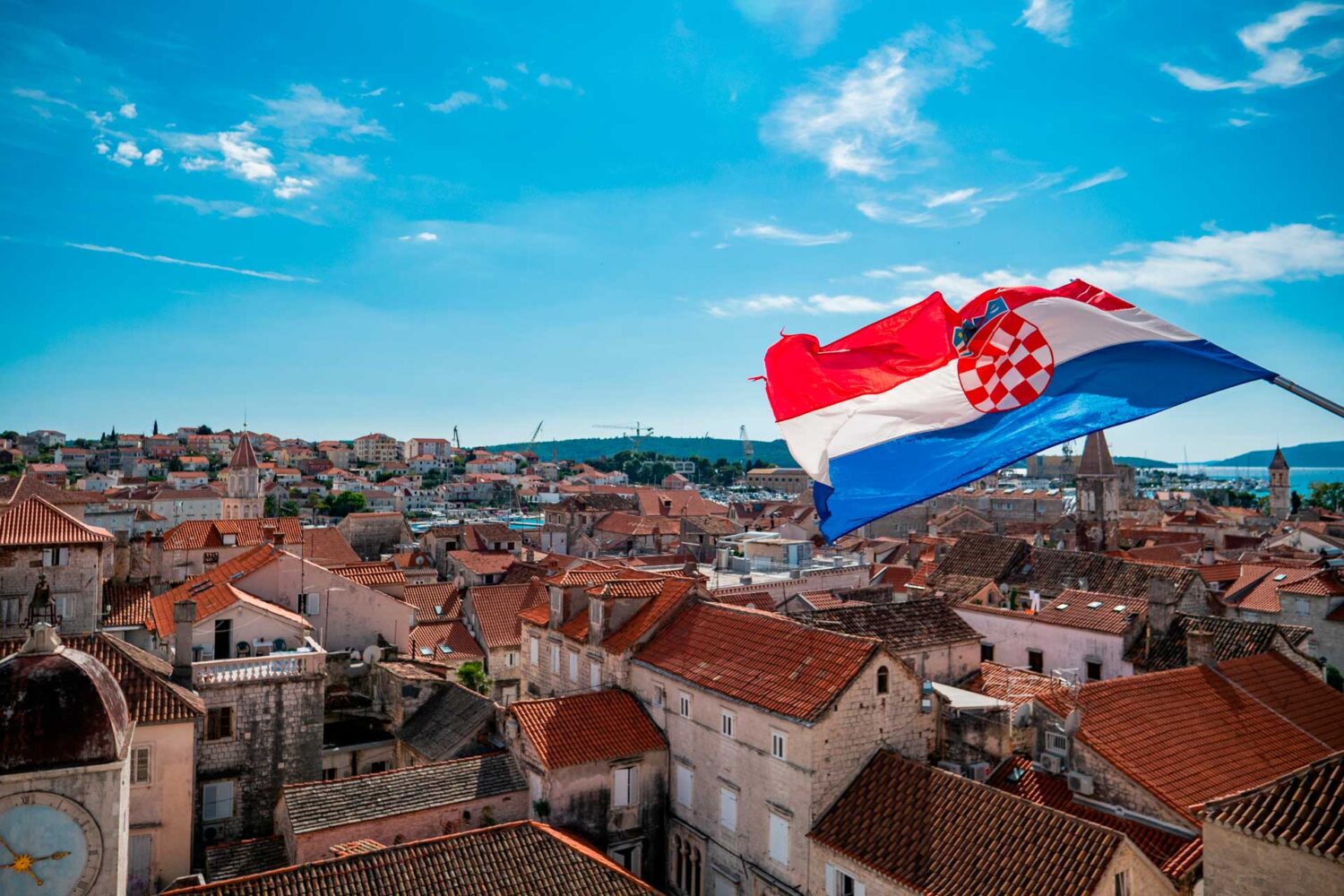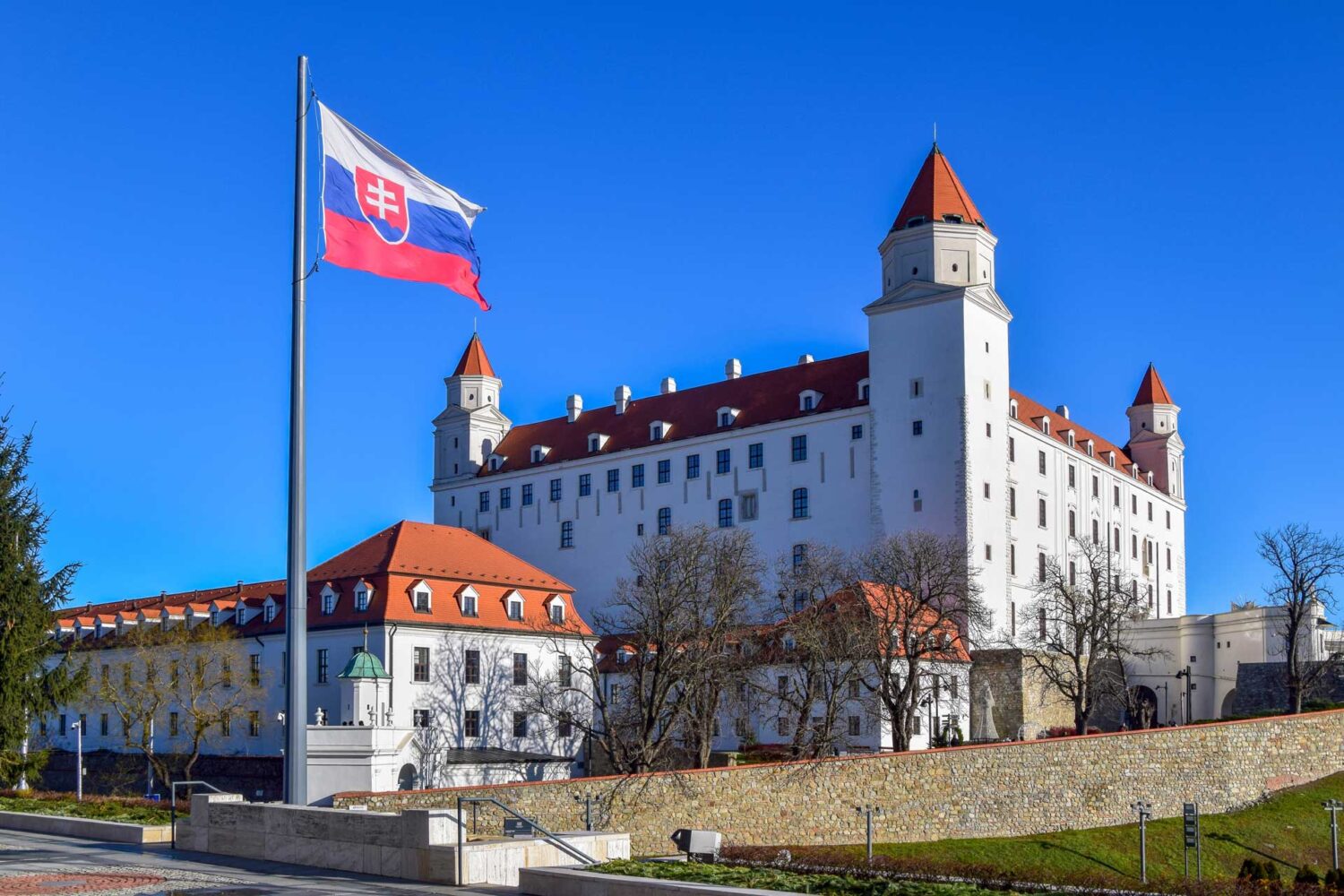The holder of a Bulgarian passport is a full-fledged citizen of Bulgaria and the European Union, with all the ensuing rights. Bulgarian citizenship gives its holder the freedom to live and work in any EU country without restrictions, the right to vote in European and local elections, and facilitates traveling around the world. Below we will discuss in detail the benefits of Bulgarian citizenship, the available ways of obtaining it in 2026, the procedure of registration, requirements for applicants, deadlines, cost and issues of dual citizenship.
With Mycitizenagency you will receive professional support at every stage of your second passport application. We offer customized solutions based on your background, investment opportunities and personal goals. Sign up for a consultation and find out how to take the first step towards EU citizenship.
Advantages of Bulgarian citizenship
Obtaining Bulgarian citizenship opens you up to a wide range of opportunities and privileges:
- Freedom of movement and visa-free travel.
The Bulgarian passport is among the world’s strongest passports. Bulgarian citizens can visit up to 168 countries around the world without visas or with simplified electronic authorization, including all EU states, Schengen area, UK, Canada, Japan, Australia and others. This makes international travel, tourism and business much easier. - The right to live and work in any EU state.
As a citizen of the European Union, a Bulgarian has the right to reside, work or study in any EU country without time restrictions. This gives a huge choice for career development, education and quality of life throughout the EU. - Access to European education and medicine.
Bulgarian citizens (and thus EU citizens) can enter universities in other European countries on equal rights with local ones, including applying for budget places and scholarships. They also have access to medical care in EU clinics on citizens’ terms, often of higher quality. - Economic and business opportunities.
Second Bulgarian citizenship facilitates the opening of a business and access to the Single European Market without customs barriers. In addition, it is possible to work in Bulgarian state institutions and participate in European business projects. Financially, Bulgaria is attractive due to low taxes – the income tax rate is only 10%, which new citizens can take advantage of when moving to Bulgaria. - Social and political rights.
Full range of citizen’s rights: participation in elections at all levels (local, parliamentary, European Parliament), the possibility to run for elected office, to hold public office, which is not available to foreigners. The citizen is also protected by the Bulgarian diplomatic services abroad and can count on consular assistance of any EU country in third countries in the absence of a Bulgarian embassy.
Together, Bulgarian citizenship gives both security and freedom: you retain your connection with your country of origin, remaining its citizen (Bulgaria generally allows dual citizenship), and at the same time get all the benefits of life in the European community. It is not surprising that more and more immigrants are interested in how to obtain a Bulgarian passport.
Get a personalized action plan for citizenship in the European Union in 12 months
Sign up for a free consultation with a lawyer through the form below
Ways of obtaining Bulgarian citizenship
In 2026, there are the following ways to acquire Bulgarian citizenship:
By birth (right of blood and soil)
A child born of Bulgarian parents automatically becomes a Bulgarian citizen by descent (jus sanguinis). Citizenship is transmitted by blood – if at least one of the parents at the time of the child’s birth is a Bulgarian citizen, the child receives Bulgarian citizenship regardless of the place of birth. For example, a son of a Bulgarian father born in France is still considered a Bulgarian citizen.
What about if the parents are foreigners and the child was born on the territory of Bulgaria? Bulgarian law adheres to the limited principle of the right of soil. Simply being born in Bulgaria does not in itself confer automatic citizenship to the child if the child has another citizenship by descent. Citizenship by place of birth is only granted to children who would otherwise be stateless (stateless). That is, if no other country recognizes the baby as a citizen, Bulgaria will grant citizenship based on the fact of birth on Bulgarian territory. Also, a child found on Bulgarian territory whose parents are unknown is recognized as a Bulgarian citizen.
It is important to understand that for foreign parents, the birth of a child in Bulgaria does not entitle them to citizenship or residence permit. Unlike some countries, citizenship by birth does not apply in Bulgaria. The main way is citizenship based on the Bulgarian origin of the parents.
By origin (repatriation by Bulgarian roots)
Bulgarian ancestry is one of the most popular ways of acquiring citizenship, especially among descendants of Bulgarian emigrants and representatives of historical Bulgarian communities abroad. The repatriation program allows obtaining a passport on the basis of Bulgarian roots (up to the third generation). According to Article 15 of the Citizenship Act, a foreign citizen who has at least one ancestor in a direct line up to the third knee (parent, grandparent or great-grandparent), who was a Bulgarian citizen or an ethnic Bulgarian, has the right to naturalize in Bulgaria by descent.
The main advantage of this way is the simplified conditions. Repatriation does not require compliance with a number of standard naturalization requirements. In particular, the candidate is exempted from the mandatory five-year residence, income verification, language test and renunciation of other citizenship. It is necessary to document Bulgarian roots: provide official papers (metrics, ancestral birth/marriage certificates, archival certificates, etc.) showing a family connection with a Bulgarian ancestor. Previously it was required to obtain a separate certificate from the State Agency for Bulgarians Abroad, which took up to a year, but since March 2021 the procedure has been simplified – proof of ancestry is immediately submitted to the Ministry of Justice.
The repatriation process looks like this: collect documents on Bulgarian origin, apply for citizenship at the place of residence (at the Bulgarian Consulate abroad or at the Bulgarian Ministry of Interior) and pass a short interview. Thanks to the 2021 amendments, the processing time for such applications has been shortened – now the decision on citizenship by descent is made in about 9 months after submission, whereas before it took 1,5-2 years. The candidate is exempted from the language test and can keep his/her current citizenship, which makes repatriation a very attractive option. It is through this program that many natives of Ukraine, Northern Macedonia, Moldova, Russia and other countries obtain Bulgarian passport by roots.
Naturalization (long-term residence)
The classical way is naturalization through prolonged residence in the country. This way is suitable for those who do not have Bulgarian ancestors or other special grounds. The conditions here are stricter and regulated by Article 12 of the Citizenship Act. For naturalization it is first necessary to obtain a residence permit on one of the grounds provided by law. The most popular options are as follows.
- Employment.
A foreigner who has concluded a contract with a Bulgarian employer can apply for a residence permit. The prerequisite is a work permit issued by the Ministry of Labor, as well as proof of qualifications – for example, an educational diploma. Representatives of regulated professions, such as medicine or law, will need to have their diploma recognized in Bulgaria (nostrification). The residence permit is issued for one year and is renewable if the employment relationship continues. After 10 years of permanent residence, it is possible to apply for citizenship. - Doing business.
Immigrants wishing to start their own business can obtain a residence permit if they register a company in Bulgaria and have the appropriate licenses and permits. It is necessary to prove actual residence, commercial activity and financial solvency (for example, bank deposit from 2174 euros). If all requirements are met, the permit is renewed and after 10 years of legal stay the businessman can apply for a Bulgarian passport. - Education.
Foreign students are entitled to a residence permit for the period of study. This requires proof of enrollment in an accredited educational institution and payment of tuition fees. It is important to note that the period of validity of the student residence permit counts only partially in the naturalization record – half of the total time. In order to qualify for citizenship, after graduation you must change your status to a worker or entrepreneurial status. - Family reunification.
The right to a residence permit is granted to immediate relatives of Bulgarian citizens or residents – spouses, children, parents and financially dependent family members. The basis is a proven degree of kinship and a written obligation of the main applicant to provide financial support. The permit is issued for one year with the possibility of extension. Children are granted citizenship together with their parents, while spouses are granted citizenship on a common basis after five years of residence with long-term or permanent status.
Naturalization is the longest path (requires several years of living in the country), but it is open to almost all law-abiding immigrants.
Find out how to obtain citizenship faster
Citizenship by marriage
If you are married to a Bulgarian citizen, it makes the path to a passport much easier. Marriage to a Bulgarian citizen does not in itself give automatic citizenship, but it shortens the naturalization period. According to the law, a foreigner who has been legally married to a Bulgarian citizen for at least 3 years can apply for citizenship after 3 years of residence in the country in the status of permanent residence. That is, it is required to first obtain a residence permit on the basis of marriage, after 5 years of marriage to obtain a permanent residence permit (can be accelerated for 3 years of living together), and after another 3 years of residence with a permanent residence permit – to apply for citizenship.
Other requirements (language skills, no criminal record, income) remain in force, but the Bulgarian spouse does not need to renounce his/her former citizenship. This is an important advantage: it is possible to keep two passports. The process is also simplified by the fact that it is usually easier for family applicants to prove the center of life interests in Bulgaria (there is a family, housing).
It should be borne in mind that marriages “of convenience” are checked – migration services are convinced of the reality of family relations. But for really established families the way of obtaining Bulgarian citizenship through marriage is one of the most direct and reliable ones.
Investments for citizenship
Bulgaria previously offered a so-called “investment citizenship” (golden passports) program, but it was canceled in 2022 under pressure from the EU. The scheme used to allow wealthy foreigners to first obtain a residence permit for an investment of €500,000 or more, and then citizenship for an investment of €1,000,000 in government bonds or projects. Few such passports were issued (about 100 over the years) and in March 2022 the Bulgarian Parliament finally abolished this possibility due to corruption risks.
What is it now? It is impossible to completely “buy citizenship” directly – citizenship for money is not officially sold. However, there is still an investment program of permanent residence (golden visa). A foreign investor can invest a large sum in the Bulgarian economy (for example, buy government bonds, invest in a fund or project from €512,000 and above) and get a permanent residence permit quite quickly. After that, having fulfilled all the standard requirements (having lived for 5 years with the permanent residence status, having learned the language, confirming the income, etc.), the investor is entitled to apply for citizenship in the general procedure. Thus, investments help to shorten the path to a passport by accelerating the acquisition of a residence permit, but do not cancel the naturalization procedure itself.
Special merits to the state
The law gives Bulgaria the right to award citizenship on special merit. If a foreigner has outstanding achievements or has made a significant contribution to Bulgaria – in the public, scientific, economic, cultural or sporting sphere – the government may initiate the granting of citizenship outside the usual conditions. In fact, this is naturalization in the national interest: the candidate may be forgiven the lack of language skills, residency and other requirements if the country is interested in his citizenship.
The decision to award a passport of merit is made at the highest level. As a rule, the application is considered by a special Citizenship Council and the final decree is signed by the President of Bulgaria. Such cases are rare – for example, citizenship can be given to a famous scientist, an investor who creates a lot of jobs, a talented athlete to play for the Bulgarian national team, etc. But one should not count on this way on purpose: “citizenship from the president” is an exclusive privilege, not a mass program. Nevertheless, it is useful to know about this possibility.
Second citizenship provides unique opportunities for you and your family: from expanding business horizons to access to the best medical and educational institutions. Our experts will find the best way for you to obtain a second passport. Make an appointment for a consultation and learn more.
Procedure for obtaining citizenship: stages of registration
When the basis is determined, it is possible to proceed to the procedure of Bulgarian citizenship. The process involves several stages and takes considerable time. In general terms, the procedure is as follows:
- Verification of the basis and preparation for filing.
First make sure that you are legally entitled to apply for citizenship (for example, sufficient period of residence, proven Bulgarian roots, registered marriage, etc.). At this stage, it is advisable to study the Bulgarian Citizenship Act and related provisions to understand the requirements. If you go by line of descent – collect archive documents, confirm your Bulgarian origin. If by naturalization – obtain a language certificate (by passing an exam) and prepare for the interview. Consultation with a lawyer at this stage would not hurt either. - Collection of required documents.
The package of documents varies depending on the basis, but usually includes: an application form (in Bulgarian), applicant’s birth certificate, passports and documents proving current citizenship; a certificate of criminal record from the country of citizenship (and from Bulgaria, if residing); documents proving the basis of citizenship (e.g. birth/marriage certificates of Bulgarian ancestors, certificate of marriage to a Bulgarian citizen, refugee status document, etc.); documents proving income in Bulgaria (certificate of employment with a Bulgarian citizen, etc.). All foreign documents must be translated into Bulgarian and notarized. Full lists of documents are published on the website of the Bulgarian Ministry of Justice and the Ministry of Foreign Affairs – it is worth checking them carefully before submission. - Submission of the application.
Applications for citizenship are submitted either in person at the Ministry of Justice of Bulgaria (Directorate “Bulgarian Citizenship” in Sofia) or through the nearest Bulgarian consulate/embassy abroad. The package of documents is submitted in originals and copies, the state duty is paid (~100 BGN). Acceptance of documents is accompanied by registration of your application in the system. You will be given an appointment for an interview (if it is not held immediately). - Interview at the Ministry of Justice.
The interview usually takes place in Bulgarian in order to assess the degree of integration and verify the application data. It is necessary to demonstrate a basic knowledge of the language, the ability to maintain a simple conversation. You may also be asked about your knowledge of the basics of Bulgarian history and culture, the constitutional system, and your motivations for becoming a citizen. According to immigrants who have already passed this stage, the interview is formal and lasts about 15-20 minutes. The main thing is to answer confidently and truthfully. If you have taken a language test beforehand, the interview is usually easy to pass. - Consideration and decision on citizenship.
After submitting the documents, the longest part begins – waiting for the decision. Your case is checked by the competent authorities: inquiries are made to the police, special services, authenticity of documents, compliance with the conditions. Then the Citizenship Council under the Ministry of Justice makes a conclusion and submits a proposal to the President of Bulgaria. The final decision is made by the President in the form of a decree granting or denying citizenship. By law, the processing of an application can take up to 12 months, but in practice it sometimes takes up to 1.5-2 years (especially for naturalization). For example, in the framework of simplified repatriation, they can now meet the deadline of one year, but naturalization after 5 years of residence often requires a full year to verify the application plus several months to issue a decree. You will be notified of the decision in writing. In case of refusal, the reasons are usually explained (for example, insufficient grounds or violations have been found). If approved, you will be invited to complete the procedure. - Obtaining a certificate and passport of a Bulgarian citizen.
The final stage is the execution of the new citizen’s documents. Once the presidential decree is issued, you officially acquire Bulgarian citizenship, which takes effect immediately. Some countries require an oath ceremony, but in Bulgaria the oath is not stipulated by law – there is no separate ceremony, which simplifies the process. You will be issued a Citizenship Certificate (if required) and assigned a Unified Citizenship Number (UCN). Then you can apply for a Bulgarian passport and a personal card (ID-card) – this is done at the Bulgarian Consulate or during a personal visit to Bulgaria (at a branch of the Ministry of Internal Affairs). It takes a few weeks to produce a passport, after which you become a full-fledged citizen of the country.
It is worth noting that in case of naturalization without release from the previous citizenship, the Bulgarian authorities may request proof of renunciation of it. Usually, a certain period of time is given to provide a certificate of renunciation of the previous citizenship (if this was required). If, however, you fell under an exception and are exempted from renunciation – no additional steps are needed.
Thus, the procedure for obtaining Bulgarian citizenship is quite multi-stage and requires patience and careful preparation. But by following all the steps and requirements of the law, you will eventually be able to obtain the coveted Bulgarian passport.
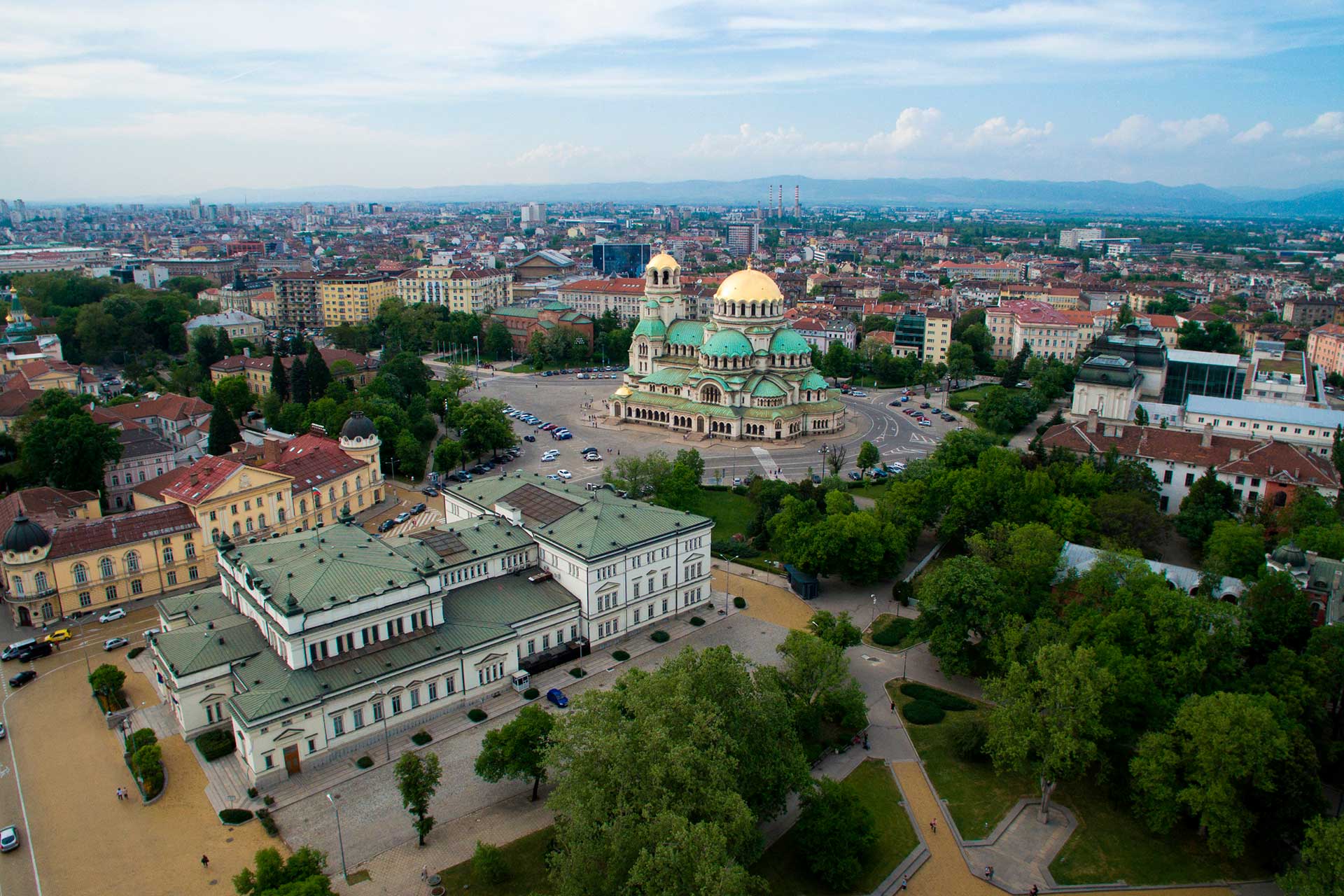
Requirements for applicants
Every applicant for Bulgarian citizenship must meet a number of criteria. The main requirements for applicants are prescribed in the law and vary depending on the grounds, but in general include the following points:
- Residence in Bulgaria for at least 5 years on the basis of permanent or long-term resident status. It is important to have a permanent (permanent residence permit) or EU Long-Term Resident. The five-year period starts from the moment of obtaining a permanent residence permit. And the residence must be continuous. If the applicant is married to a Bulgarian woman/Bulgarian, was born in Bulgaria or came to the country as a child, the required period of residence is reduced to 3 years. There is no residency requirement for origin, investment or merit programs.
- Age and capacity. Only a sane person over 18 years of age may apply for naturalization. Children may be included in a parent’s application, but it is the adult who files the application himself or herself.
- Law-abiding. Having a clean criminal record is a prerequisite. The candidate must not have a criminal record for intentional crimes in Bulgaria and there must be no current criminal cases against him/her. In order to confirm the applicant’s criminal record, he/she must submit a criminal record certificate from Bulgaria and his/her country of citizenship.
- Legal source of funds and housing. It is necessary to prove financial solvency – having a job, business or other income that allows you to live in Bulgaria without applying for state benefits. Usually, a salary certificate from the employer or the tax return of a sole proprietor for the year is sufficient, as well as documents on housing (rental agreement or property ownership).
- Knowledge of Bulgarian language. It is required to have a basic knowledge of Bulgarian and to prove it with a certificate or a diploma of education obtained in Bulgarian. Verification is done through an exam in Bulgarian language and cultural basics. The exam is conducted by the Ministry of Education: a test of ~20 questions on the Bulgarian language, history and geography, lasting 60 minutes; a minimum of 12 questions must be answered correctly in order to pass. After a successful test, the applicant will also have an interview at the Ministry of Justice, where simple questions are asked in Bulgarian (about motivation, knowledge of the country, etc.) – this confirms the integration of the candidate. Persons with Bulgarian roots (repatriates) and some other categories are exempted from this requirement, but most applicants will have to demonstrate language skills.
- Loyalty and integration. Although the political loyalty test is not formally prescribed, the interview may inquire about the applicant’s attitude towards Bulgaria, motivation to become a citizen, knowledge of culture. Respect for Bulgarian laws and Constitution is required.
- Renunciation of other citizenship. As a rule, the naturalized person must renounce his/her previous citizenship by the time of obtaining Bulgarian citizenship. In practice, the applicant is required either to submit a document of renunciation of foreign citizenship or a signed undertaking to renounce the other citizenship upon obtaining Bulgarian citizenship. Exceptions: the spouse of a Bulgarian citizen, a citizen of an EU/EEA country or Switzerland, as well as persons to whom citizenship is conferred by descent are not obliged to renounce their second citizenship. Such categories are allowed to retain dual citizenship.
Proof of compliance with all criteria (certificates, certificates, declarations) is required at the application stage. Failure to meet any of the key requirements most often leads to denial of citizenship, so you need to prepare in advance: live the required period of time, learn the language, comply with the laws and declare income.
Learn more about current EU citizenship programs
Fill out a simple form and our experts will give you free advice at your convenient time
Terms and cost of obtaining Bulgarian citizenship
How long do I have to wait for Bulgarian citizenship? The time to obtain a passport depends on the chosen basis and consists of several stages: fulfillment of the conditions (for example, residence), processing of the application, as well as bureaucratic delays. Below is an approximate timeframe for different methods:
- By Bulgarian origin: about 1-2 years in total. Preparation of documents (search for certificates, archives) can take several months. Once submitted, the application is processed up to ~9 months due to the 2021 reforms, sometimes up to a year. Plus 1-3 months to issue a presidential decree and process the passport. Many repatriates receive a Bulgarian passport in about 14-18 months from the start of the process.
- By naturalization (5 years of residence): minimum 6-7 years. First ~5 years of residency before you are eligible to apply. Then the processing itself takes about 12 months at the Ministry of Justice, and it can take up to half a year for a presidential decree. There are delays, and in practice people get citizenship in ~1 year after applying. Total from entry into the country to passport is usually at least 6-7 years, assuming all requirements are met in time.
- Through marriage: about 4-5 years. The required period of residence is reduced to 3 years, plus about a year to process the application. Thus, if you marry a Bulgarian, you can obtain citizenship in about 4 years after the wedding (3 years of living in Bulgaria + ~1 year for processing). If you had a residence permit by marriage right away, the period may be closer to 4 years, if you started with a temporary residence permit – closer to 5 years.
- Through investment: ~6 years. Although the direct “fast track” route has been canceled, an investor can get a permanent residence permit in a few months (usually ~6-9 months for all procedures), but then still needs to wait 5 years for permanent residence status, followed by a year for citizenship consideration. As a result, from investment of funds to passport – about 6 years (if the process goes smoothly). Thus, the investment saves 4 years (you do not have to wait 5 years for residence permit, as a regular immigrant, immediately given a residence permit), but does not cancel the five-year waiting period.
- By merit: from a few months to a year. Here the terms vary greatly, as everything depends on the individual decision of the authorities. There have been cases when a sportsman or a scientist was granted citizenship in 2-3 months (by express presidential decree). But they can even consider, discuss and check merits for a year. On average, if your application is approved, it may take up to 6-8 months, which is still much faster than standard naturalization.
It is important to realize that these are indicative timelines. The actual timeframe for obtaining Bulgarian citizenship may vary depending on the workload of the commissions, the completeness of your documents, and even external factors. In recent years, there has been an increase in the number of applications, causing queues to form at the Ministry of Interior for filing and at the Ministry of Justice for processing cases. According to immigrants, sometimes the waiting time is longer than the official deadline – for example, instead of the promised 12 months, a case can take 18 months. You need to be patient and regularly check the status of your application. Nevertheless, compared to some countries, bureaucratic timeframes in Bulgaria are moderate: repatriates and spouses receive a passport faster (in 1-3 years) than, say, in some other EU countries.
Costs and state fees
How much does it cost to obtain Bulgarian citizenship? The citizenship process itself is relatively inexpensive, except for living expenses. The main state fees and expenses are as follows:
- The state fee for the application is BGN 100, which is equivalent to approximately €50-55. This amount is paid upon submission of the documents (in BGN equivalent, through a bank) to the account of the Ministry of Justice. The fee is uniform regardless of the grounds (naturalization, origin, etc.).
- Translations and notary services. Since many documents (certificates, statements) will be in a foreign language, they need to be translated into Bulgarian and notarized. Translator and notary services can cost between €5 and €15 per page of translation, depending on the country. On average, a complete package of documents costs €100-300 for translations and certifications.
- Language examination. Taking the state examination in Bulgarian for naturalization is free of charge or for a nominal fee (if the examination is taken through the Center for Assessment in Education, no fee is charged, at consulates it is also usually free of charge). However, preparing for the exam may require courses or lessons that charge a fee. For example, online Bulgarian courses cost around €200-400 per intensive, private tutors cost €10-20 per hour. This is an optional expense, but candidates often invest in study for success in the exam.
- Registration of passport and ID-card. After obtaining citizenship, you will have to pay for the production of new documents. In Bulgaria, the state fee for issuing a passport is around 50-60 BGN (approximately €25-30) and ~25 BGN (€13) for a plastic personal card with normal production time. If issued through a consulate abroad, there may be additional consular fees (usually €20-30 per card). In general, it costs no more than €50 in total to obtain the citizen’s documents themselves.
- Other costs: photo for documents (€5-10), postage, travel to the consulate or travel to Bulgaria (if personal presence is required, for example, for biometrics). These costs are individual, but are small in the scale of the procedure.
In total, the official costs of the citizenship process (excluding residency) are usually a few hundred euros. For example, a repatriate collecting documents will spend ~€200 on translations+travel and €50 fee, totaling about €250. A person naturalizing through residency may spend a bit more due to language courses – say €500 total. These figures are not comparable with the costs of the investment route: there the main “cost” is the investment itself. Now for a residence permit requires an investment of €500,000 (for example, in a fund or real estate). This money does not “burn” (it is an investment, not a payment to the state), but it cannot be used for 5 years. In addition, the services of immigration agencies to support the investment program cost from €20,000 and more. Therefore, although it is impossible to “buy Bulgarian citizenship” directly, the way through investments is the most expensive in financial terms.
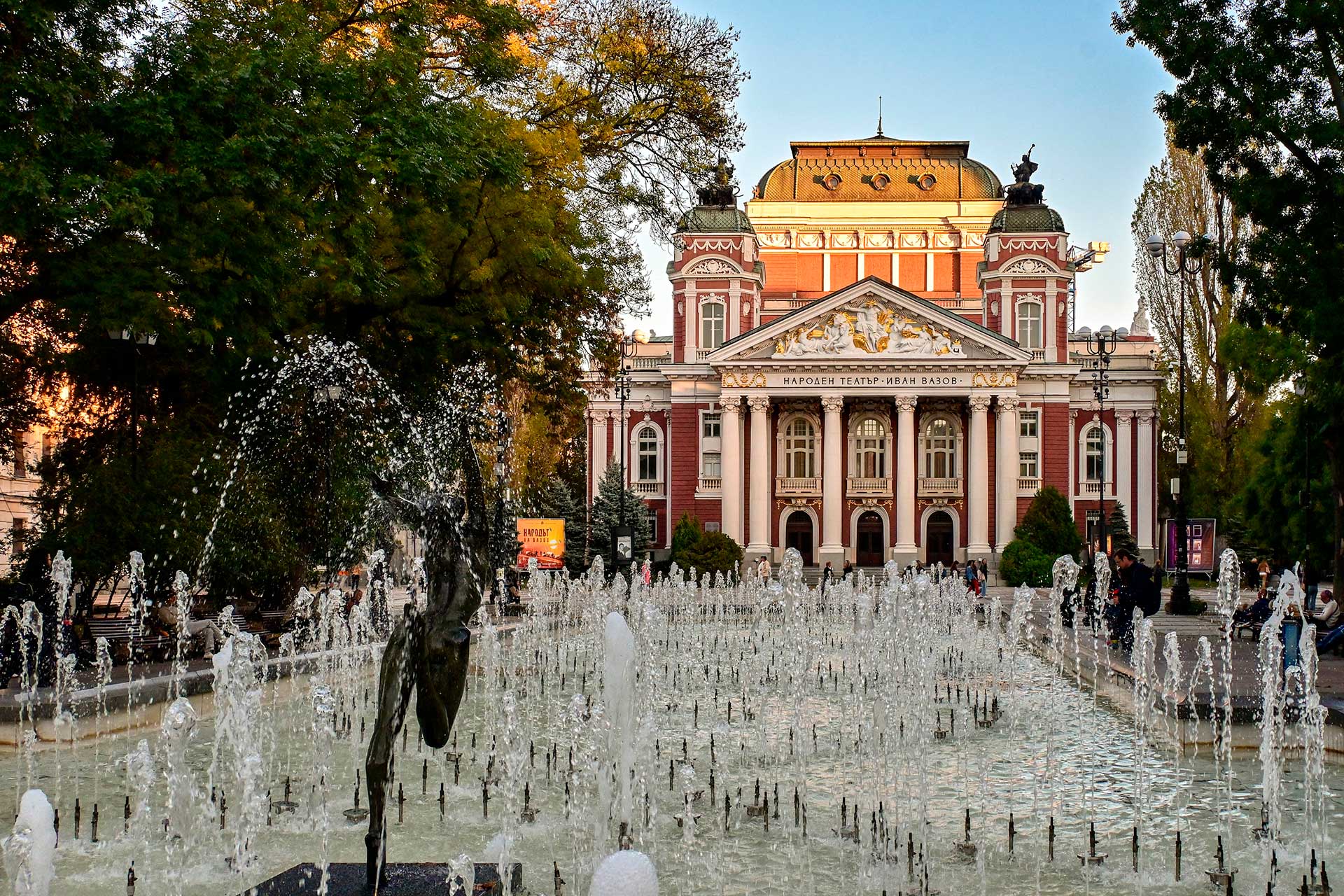
Does Bulgaria allow dual citizenship?
The question of dual citizenship is of concern to many people: can I keep my first passport and be a Bulgarian citizen at the same time? Answer: Bulgaria allows second citizenship, although formally it has no treaties on dual citizenship with other countries. This means that when obtaining a Bulgarian passport, you have the right to keep your former citizenship as well – the law does not prohibit this. However, there are nuances related to the naturalization procedure and the legislation of other countries.
As mentioned, Bulgaria requires renunciation of other citizenship only for certain categories of naturalizers. Who can have dual citizenship without renunciation? EU citizens, spouses of Bulgarian citizens, ethnic Bulgarians, refugees – they are allowed not to renounce their former citizenship. Those naturalized on general grounds (without Bulgarian roots and preferences) in the application undertake to renounce their foreign citizenship. But in practice there is no control over this: after receiving a Bulgarian passport you are not taken away another passport. Bulgarian legislation only states that a person with two citizenships is considered in Bulgaria only as a Bulgarian citizen (Art.3 of the Act). That is, inside the country you will be considered exclusively as a Bulgarian citizen, without any special statuses.
Conclusion: by obtaining Bulgarian citizenship, you can in most cases keep your first passport. Bulgaria actually recognizes dual citizenship and treats it neutrally. However, research your country’s laws: you may have to formally renounce your citizenship or notify the authorities. In any case, having a Bulgarian passport gives so many advantages that for the sake of them often go even to renounce the previous citizenship, if required.
As a result, Bulgarian citizenship with the right approach is an achievable goal for many immigrants. Thousands of foreigners have already passed this way and have become full citizens of the European Union. The key to success is compliance, perseverance and patience. Bulgarian legislation is transparent, but bureaucracy is still present. If you are afraid of doing something wrong, contact a lawyer specializing in second citizenship. He or she will help you fill in the documents, make sure that your dossier is complete and accompany you at all stages of the process.
Frequently Asked Questions about Bulgarian Citizenship
We have gathered answers to the most common questions about obtaining Bulgarian citizenship. If you did not find the information you were looking for or want to learn more about the procedures, timelines, and benefits, contact us for a free consultation.
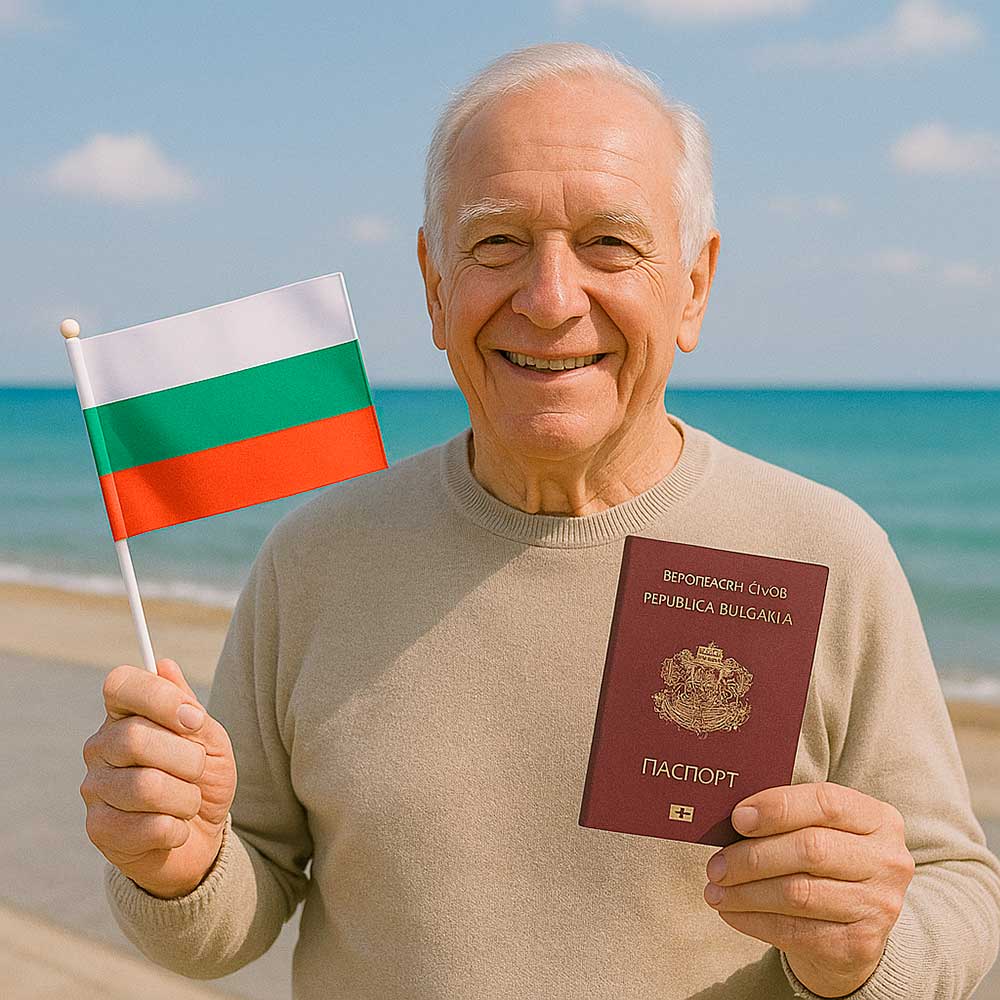
Yes, it is possible in cases of applying through consulates under repatriation or naturalization programs. The application can be submitted at the Bulgarian consulate at the place of residence, but the interview is usually conducted in person, including in Sofia. A physical visit to Bulgaria to obtain an ID card and passport is also not to be avoided.
Studying in itself does not entitle you to citizenship, but the years of study can be counted as a period of legal residence for subsequent naturalization. This is especially important if after the university the graduate stayed to work and obtained a residence permit.
Yes. Bulgarian citizenship can be revoked by Presidential Decree if it is found that it was obtained fraudulently – for example, by using forged documents or by false information on kinship or criminal record (see the Citizenship Act, Art. 22).
Yes, Bulgarian citizens are generally issued a U.S. B1/B2 visa for up to 10 years and are exempt from visa fees under a number of categories. In addition, negotiations are underway to include Bulgaria in the Visa Waiver Program.
Yes. If at least one of the parents is a Bulgarian citizen, the child becomes a Bulgarian citizen automatically, regardless of the country of birth. However, in order to register citizenship abroad, documents will need to be processed through the consulate, including proof of parent’s parentage and citizenship.
Marriage to a Bulgarian citizen does not grant automatic citizenship. You may apply after 3 years of permanent residence in Bulgaria while married and living together, instead of the usual 5 years.
